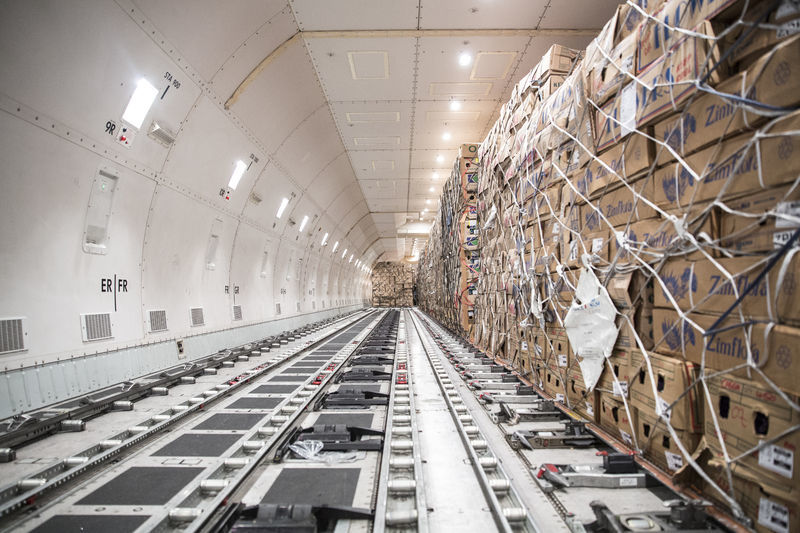
As part of its constant bid to improve its sustainability, Air France-KLM-Martinair Cargo is experimenting with temperature control elements throughout the supply chain. Perishables director Pieter Fopma said trials have been carried out on routes from South Africa and Latin America.
“Experiments have been conducted in close cooperation with forwarders and shippers, for instance on the Nairobi-Amsterdam route: together with a cool chain consultancy firm, using their independent market-leading quality assessment services.”
“We are currently in the process of assessing, benchmarking and optimising the integral flower supply chain from farm to final customer with the aim of reducing time temperature exposure in degree hours. Furthermore, we work very closely with Wageningen University, Food Quality Management Logistics/Innovation, to support us on cool chain improvement, for example on the trade lanes for sensitive berries,” he said.
Air France-KLM-Martinair Cargo and its partners serve the main freight corridors for perishables between Schiphol and perishable exporting countries such as Colombia, Ecuador, South America and Kenya. “Given the strategic position of Schiphol we are one of the main capacity providers (both on lower and on main deck) to the worldwide perishable industry, with a steady worldwide market share,” Fopma told ED. “Our full freighters (currently a mix of MD11’s, B747-400 F’s and B777 F’s) can carry 80-100 tons of perishables and we re-export via Amsterdam-Schiphol, primarily to various European destinations, Russia, China and North America.”

Challenging targets set by perishables forwarders for 2016
“As there has been an increase in demand for perishable produce globally, this has led to producing countries expanding land and diversifying products. In addition, the buyer’s trend is to buy locally grown and organic. The popularity of berries’ family produce, has led to countries like Peru starting to produce blueberries some time ago. We also see the production of vegetables in various countries is further improving and increasing like for example the Mexican bell peppers. African produce is also developing rapidly, which will have consequences for exports to the Middle-East in the long run,” Fopma said.
“Now that the socio-economic situation globally is improving, we are hopeful that the economy will further improve as well. With the health trends in the perishable markets that we have already seen, we are optimistic that we will continue to see growth worldwide. Although we see that some markets of interest are changing, we continue to receive requests from local specialised forwarders and large global forwarders, some of which have further strengthened their vertical organisation for perishables and have set very challenging targets for 2016 and the years to come.”
Increased quality demands
“Given the nature of the product as being very sensitive to temperature deviations and throughput time, customers become increasingly quality conscious and are increasingly demanding more elaborate and stringent cool chain requirements throughout the cool chain. Furthermore, we have to factor in inherent process variations due to different aircraft, product varieties and origins. Each station has different ‘context factors’, such as climate, distance from the runway to the warehouses amongst others, so these must be considered. This is compounded by increasing demand from the industry for standardisation of quality, meaning variability needs to be minimised as far as possible,” Fopma said.
“In this process, tripartite communication is essential with both forwarders and shippers. They are a source of information and tell us about their needs, which gives us a better understanding of the desired high quality product we need to deliver. The input leads to better quality onboard the plane, a reliable and sustainable network and the control of the complete cool chain. In summary, transporting perishables requires dedication, expertise and most of all a reliable product: In that sense we really stand out from our competition and we have a reputation to maintain,” he said.

